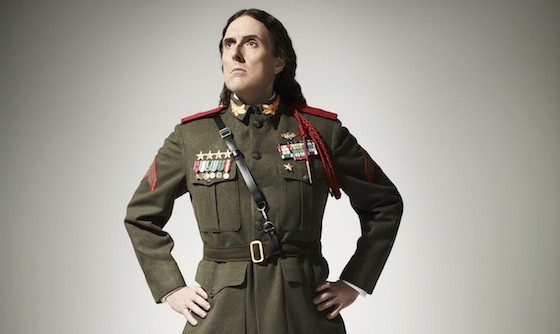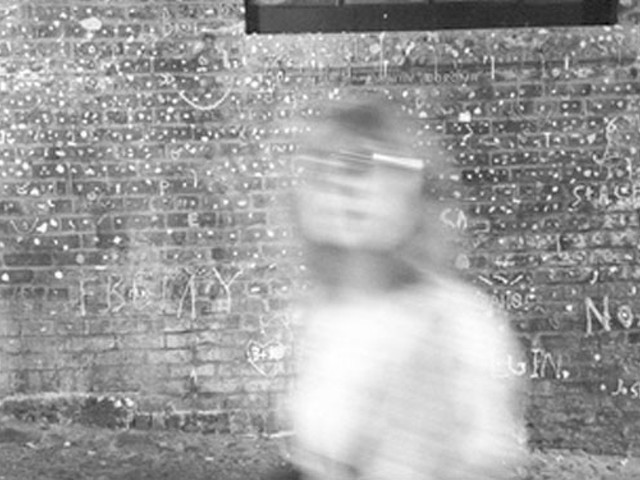If you are in my advertising demographic -- 18 to 34 -- the pop culture you loved as a child is terrible. The Power Rangers were terrible, the Transformers were terrible, the Ninja Turtles were terrible. Michael Bay didn't ruin any of it; it came pre-ruined. I loved all of it (I love the memory of it now) and it is really bad, inasmuch as it is impossible to enjoy when you don't have a trip with your parents to Toys R Us lined up, or when you're the one with the credit card.
This doesn't really matter, obviously, because in animated-GIF-sized bursts all of those terrible shows have made BuzzFeed and its readers very happy -- it's not about the Power Rangers so much as it is being reminded you're a '90s Kid. Watching one all the way through is a bad idea, but as an excuse to talk to a friend you don't get to see very often they're fine.
Weird Al is not terrible, which is my best explanation for why we 18-to-34-year-olds have spent the last week sharing his videos and acting as though a dear friend and mentor has come back from the dead. Weird Al is who we wanted to be when we grew up.
The terrible and obvious secret of watching an entire episode of the Power Rangers as an adult isn't that you were fooled badly by a show that, to skirt a contract dispute, sent three superhuman warriors for the forces of good to a Teen World Peace Conference -- it's that you were fooled by a bunch of people who didn't care at all about what they were doing.
After you've had a few jobs you hate, or are bad at, or just don't understand, you recognize your own awful malaise in the writing and acting and overall shoddiness of almost all of it. It's the TV equivalent of spammy SEO copywriting, or telemarketing for Comcast. Somebody had to act like they were really excited to go to a World Peace Conference, knowing that millions of people would see them doing it.
In the end you can't even be mad at them for putting you on the hook for all those action figures that didn't actually do the moves from the commercials: They were as adrift then as you are now, and you couldn't even tell.
But not Weird Al. There might have been a time when you liked UHF and TURBO: A Power Rangers Movie equally, but as an adult it's clear that Weird Al is different. Weird Al is and has always been, of all things, a craftsman.
Continue to page two.
Look: It was not my plan to reach a point in my life where Weird Al would be a generational role model, but I'm not going to fight it.
Weird Al did not package himself cynically to reach you; he did not use elaborate and inevitably disappointing commercial playsets to make your parents buy you Weird Al dolls and there will be no gritty Weird Al reboot now that you're old enough to wish you were nine and listening to Alapalooza again.
Weird Al is not prey or party to intellectual trends -- he says the words "a spastic" in one of his new videos, which would get you or me disinvited from the average college commencement ceremony, even if we had a great "Two of Hearts" parody (I call it "Tube of Farts") -- or fashion trends. He changed his look once, in 1999, and he shows no signs of changing it again, or needing to.
Weird Al does basically what we wish we could do, in our most idealistic moments: He is very good at a trade, and he's always trying to get better, and 30 years into his career he is still better at it than anybody else. He's worked with the same band forever, and his live show, which I have seen four or five times, is far more manic and taxing that it would need to be for him to ride the state fair circuit comfortably for the rest of his life.
He doesn't have to compromise his values or sell the extended warranty, and the people who buy his work love what he does. Members of his extended family have never suggested he go into a STEM field, or e-mailed him a TED Talk about unlocking his true potential by innovating disruptively.
And OK, he's famous for parodying hundreds of songs nobody cares about anymore. I'm not going to write or read an oral history about it, and I swear on every Nirvana record that I'm not going to spend the rest of my life insisting to my children and grandchildren that "Albuquerque" was transgressive or important just because it made me inconceivably happy in junior high. But it's an admirable way to make a living, an enviable way, which I think is why we share the videos after we're done laughing to ourselves.






